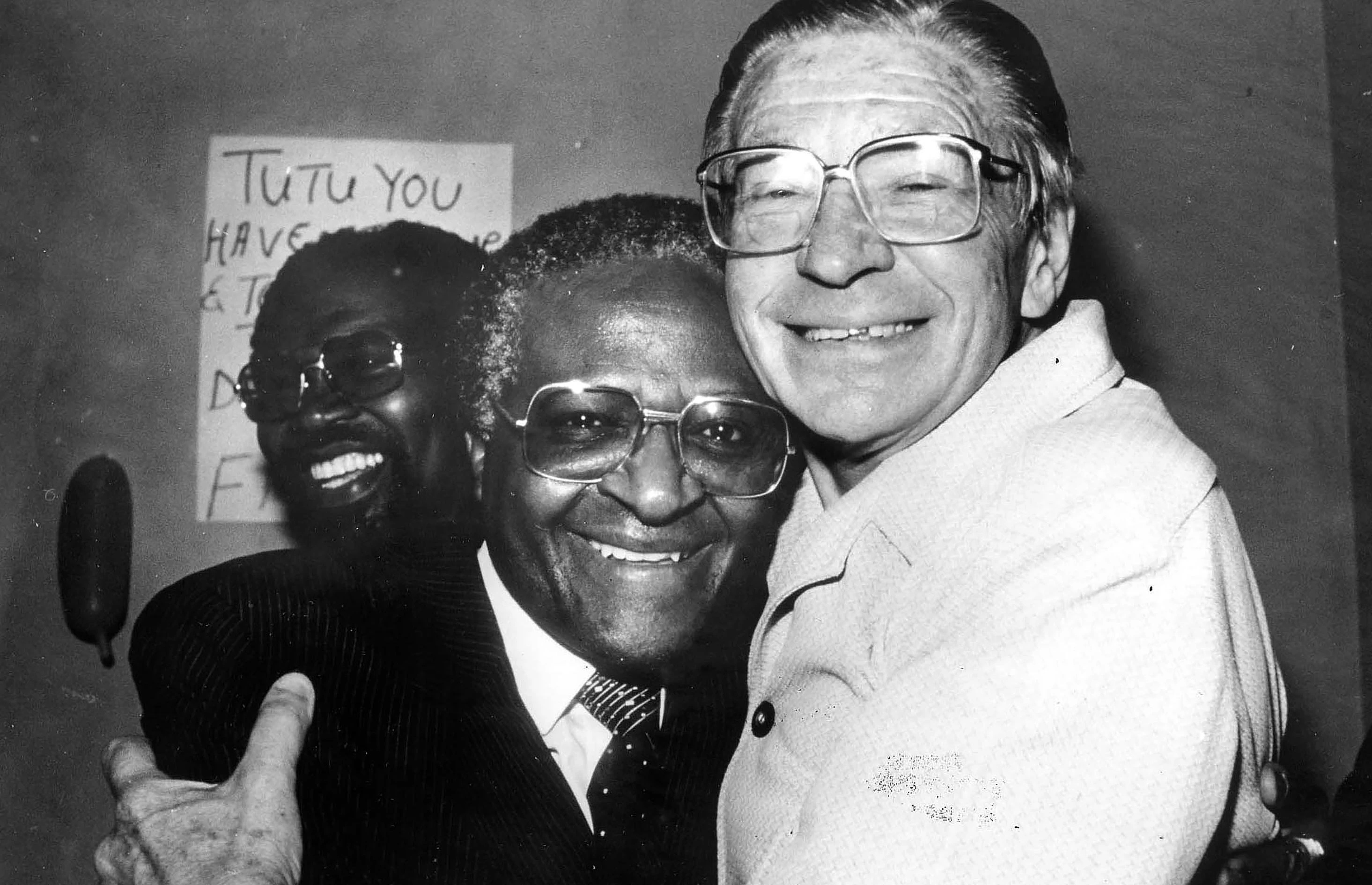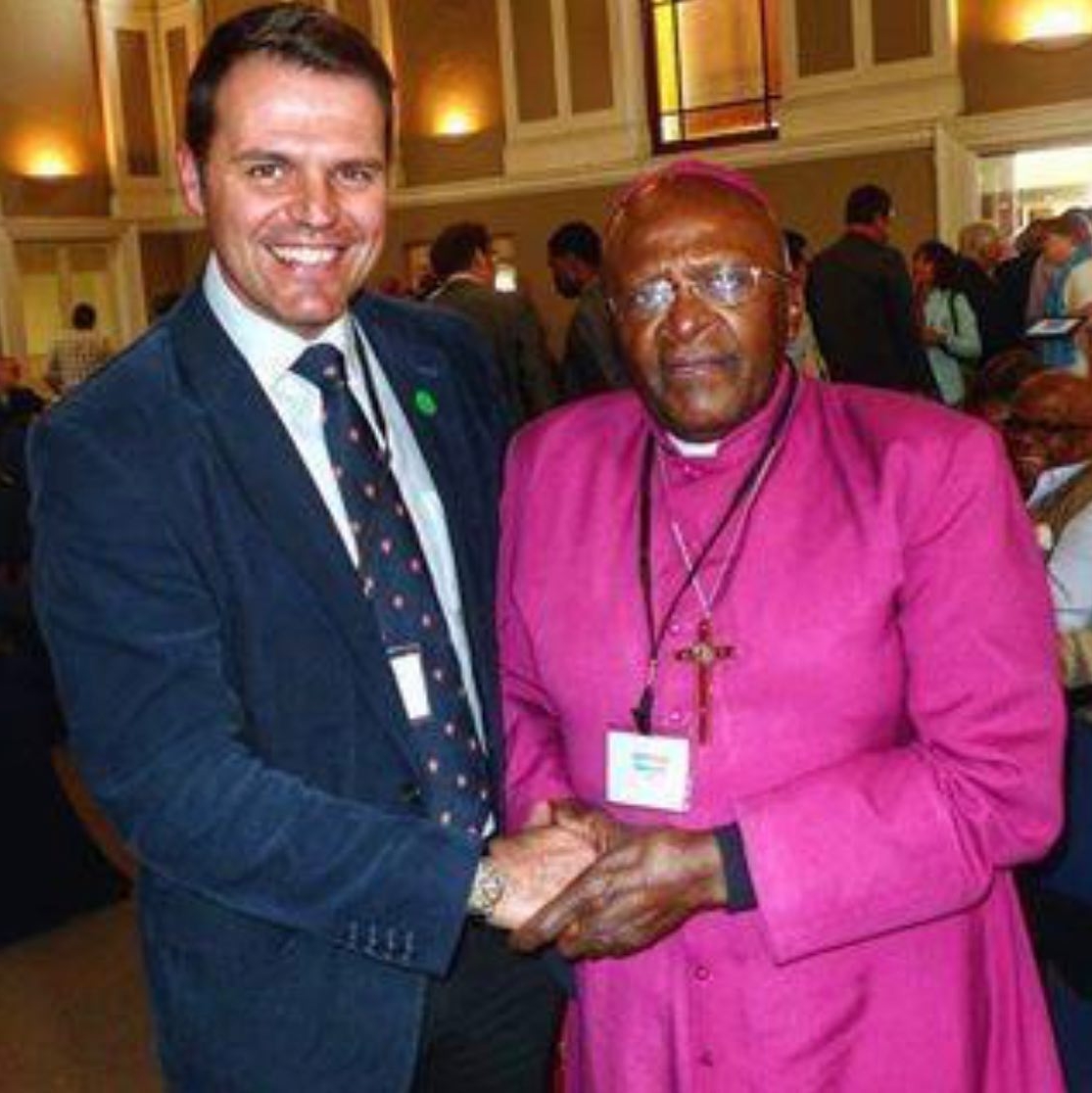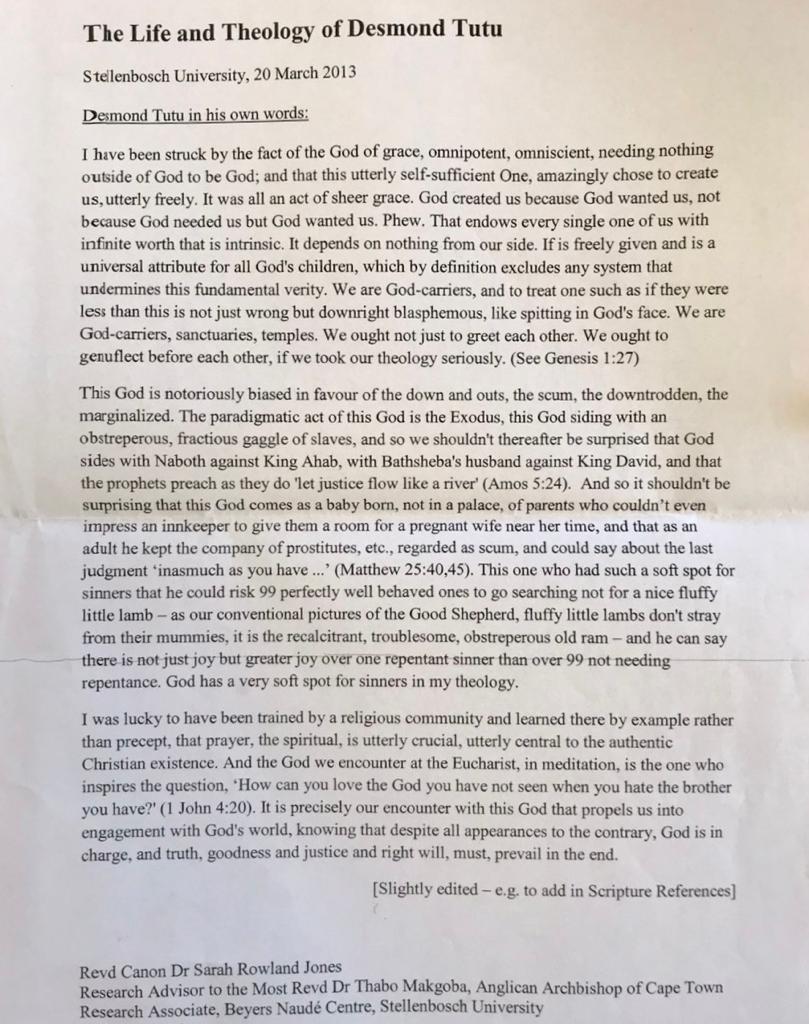Remembering Archbishop Desmond Mpilo Tutu - Beyers Naudé Centre for Public Theology and the Faculty of Theology, Stellenbosch University
 Sunday, December 26, 2021 at 3:09PM
Sunday, December 26, 2021 at 3:09PM  SOUTH AFRICA – OCTOBER 19, 1984: Bishop Desmond Tutu and Beyers Naude, with Manas Buthelezi in the backround. (Photo by Gallo Images / Avusa / Margo Williams).It was with great sadness that I learned of the passing of Archbishop Desmond Mpilo Tutu (7 October 1931 - 26 December 2021).
SOUTH AFRICA – OCTOBER 19, 1984: Bishop Desmond Tutu and Beyers Naude, with Manas Buthelezi in the backround. (Photo by Gallo Images / Avusa / Margo Williams).It was with great sadness that I learned of the passing of Archbishop Desmond Mpilo Tutu (7 October 1931 - 26 December 2021).
He was a remarkable human being, a person whose life was shaped by his faith in Jesus Christ, and the ethical responsibilities that arose from a lived spirituality. He was a great colleague and friend to Rev Dr Beyers Naudé, and because of that showed great friendship and commitment to the Beyers Naudé Centre for Public Theology, and the Faculty of Theology, at the University of Stellenbosch. Of course he had a much closer relationship to the University of the Western Cape, where he served as Chancellor for almost 25 years. His willingness to build strong and meaningful relationships with the University of Stellenbosch, in spite of the role that this institution played in South Africa's apartheid history, is itself a testimony to his tendency to work for reconciliation and justice. You can find the official statement from the University of Stellenbosch here.
 SOUTH AFRICA - OCTOBER 8, 2014: Bishop Desmond Tutu and Dion Forster (TRC re-enactment Beyers Naudé Centre for Public Theology, Faculty of Theology, Stellenbosch University).I had a few conversations with colleagues in the Faculty of Theology today about Archbishop Tutu's involvement over the years. He was best known by the late Professor Russel Botman (former lecturer at UWC, and later Lecturer and Rector at Stellenbosch University), but also by Prof Nico Koopman (my predecessor as Lecturer in Public Theology and Director of the Beyers Naudé Centre for Public Theology, now Vice Rector at Stellenbosch University), Prof Christo Thesnaar, and Dr Sipho Mahokoto (among others). Here are a few important moments that we could remember:
SOUTH AFRICA - OCTOBER 8, 2014: Bishop Desmond Tutu and Dion Forster (TRC re-enactment Beyers Naudé Centre for Public Theology, Faculty of Theology, Stellenbosch University).I had a few conversations with colleagues in the Faculty of Theology today about Archbishop Tutu's involvement over the years. He was best known by the late Professor Russel Botman (former lecturer at UWC, and later Lecturer and Rector at Stellenbosch University), but also by Prof Nico Koopman (my predecessor as Lecturer in Public Theology and Director of the Beyers Naudé Centre for Public Theology, now Vice Rector at Stellenbosch University), Prof Christo Thesnaar, and Dr Sipho Mahokoto (among others). Here are a few important moments that we could remember:
- 2002 Archbishop Tutu participated in the launch of the Beyers Naudé Centre for Public Theology.
- 2008 (23 Sept) he spoke at the event in memory of Beyers Naudé, reflecting on their shared work within the Ecumenical Church movement to strengthen the Church's witness against the evils of apartheid.
- 2009 (11 Feb) he was a speaker at an event that was linked to the 150th anniversary of the Faculty of Theology at Stellenbosch University.
- 2013 (20 March) he spoke to our students (I think this was the ‘pre-cursor’ our current courses at 4th year level that focus on ‘modern theologians and modern theologies', which we innitiated in 2014). See the small summary from Sarah Rowland (who worked with the Archbishop, Prof Nico Koopman and our colleague, Dr Sipho Mahokoto. Dr Rowland was a researcher in the Beyers Naudé Centre for Public Theology). Please see the scan below of some thoughts that Archbishop Tutu prepared for the students (edited by Dr Sarah Rowland).
- 2014 (8 and 9 October) he hosted the Truth and Reconcilliation Commission (TRC) re-enactment hosted by Prof Christo Thesnaar on behalf of the Faculty of Theology, the Beyers Naudé Centre for Public Theology, and a variety of other Faith Based Organisations, Church Bodies, Denominations and Civil Society groupings.
He is remembered as a faithful and courageous servant of Jesus, and a champion for the values of God’s just, loving, and inclusive Kingdom. His ministry as an Anglican Priest and Bishop shaped so much of the Church's work and witness during some of the most difficult times in South Africa's history (both before the end of political apartheid, and in the years after the dawn of participatory democracy). He was a great theologian with a deep commitment to Black and African Christian theologies of Liberation. Under his leadership many of us were inspired to take a stand on important issues such a anti-racism, economic justice, gender rights, the rights of LGBTI+ persons, and the plight of Palestinians under the Israeli occupation (to name just a few).
We pray for his family, friends, the Church, and all those who mourn his passing.
May he Rest In Peace and rise in Power.




Reader Comments